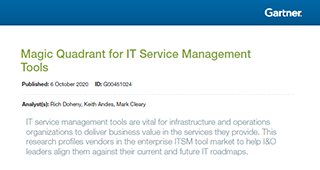As a leader in technology I am constantly asked “how do you make the right hires?” While every organization is different, and leaders have their own preferences, I find that the following traits have are more common than not in top performers.
Effective problem solving and troubleshooting skills
Believe it or not, this has been one of the most difficult skills to find. When I first started in management, I made the assumption (incorrectly) that all technical staff had great troubleshooting skills. I thought it was somewhat “baked in” to individuals who were able to attain high level technical certifications or build complex solutions.
Over the years however, I have seen sysadmins that could install a fiber channel SAN, but couldn’t determine that a loss of connectivity came from a controller failure. I’ve seen desktop support technicians that can create unattended installations of windows but couldn’t figure out why windows was crashing after a driver update. I’ve even witnessed the inability to troubleshoot a windows cluster failure after the removal of a network cable that was used for the cluster heartbeat.
Conversely, I’ve seen cable installers with no formal understanding of TCP/IP help a network engineer understand why a switch in the middle of the stack wasn’t communicating. I’ve seen help desk technicians walk HVAC technicians through troubleshooting the air conditioning in an office. Perhaps most amazing was the time when I witnessed a web developer help a plumber troubleshoot a water leak in a radiant heater.
Effective troubleshooting skills can have a more significant (positive) effect on an organization, than the most certified technical professional. Look for these individuals in your organization and invest everything you can in them.
Ability to build relationships across the organization
To borrow a concept from the highly respected folks over at manager tools, (http://manager-tools.com) there are three types of power in an organization. Role power, relationship power, and expert power. Role power is the type of power/influence you have as a result of “being the boss” or being in charge of delivering widget x. Expert power is the power IT professionals have relied on for years. Expert power is the type of power you get from being an expert in your field. Relationship power is the the influence you have on others based on your relationship you have built with them. People do things for you because you asked them to. Relationship power can go much further in an organization and does not depend on formal reporting lines. It is by far, the most important of the three. Have you ever met someone that could “just get things done” and could somehow avoid the politics of the organization? This is likely because they had built strong relationships, and could ask for a favor when the need arose.
Whenever IT staff members build relationships things go much smoother. Let me give you an example:
In my organization we have a separate service desk for facilities related requests. The facilities service desk follows similar processes as to what you would expect from an IT Service desk (Tickets, SLAs, first trip resolution, etc). In their model new power circuit installation has a 5-10 day SLA. Well, one evening we were replacing network switches in one of our wiring closets. It turns out that the new switches had a much larger power draw than the old ones, and the existing circuit was already at capacity. We suddenly realized that we would need another circuit in the closet before we could complete the switch upgrade.Under normal circumstances we would have had to put the old gear back in and delay the project by a week, and take the network down for a second time. However, because I had a good relationship with the facilities folks, I was able to call in a favor, and get a new circuit added in a couple of hours. This allowed us to get the project done on time, within our maintenance window, and no one was any wiser.
You can probably thing of several examples even more impactful than this in your own organization. The main point here is, employees can be more effective when they build strong relationships. While many of us in IT are introverts, those who are willing to reach out will go further, faster, and get more done than those who don’t.
Positive attitude towards (all) work
I enjoy a good “user horror story” as much as the next person. However, IT folks seem to relish the fact that sometimes users do silly things. We often (inadvertently) spend a great deal of time trying to out do each other and tell the worst story based on the time “when I worked on the service desk.” As much fun as this can be, it isn’t helpful to the organization, and it certainly doesn’t move help things move forward. We tend to forget that IT exists to help achieve organizational outcomes. All it takes is one person to change the conversation and say “I helped someone get that report done on time.” Or I got to help someone reset their password so they could submit their grant on time”. Be that person, put a positive spin on things, and I guarantee you will get noticed and get things done. As a matter of fact, if you start your conversations with “I was able to” or “I got to” instead of “I had to”, Give me a call. I’ll find a spot for you on my team. Seriously.
Desire to be part of a team (this is more than willingness)
Another trait that is typical of IT staff is the desire to work alone. Most of us are introverted and would prefer to solve a solution in private. Some of us may have even started in IT because we wanted to work with computers instead of people. While there are still a few of these roles left in IT, they are becoming less and less common. IT solutions and services now require high performing teams of people working together to get things done. Many will reluctantly work in a team when asked to, simply because you know the work depends on it. However, Seeking out opportunities to work with others is a good way to distinguish yourself and quickly become the “go to” person when a role needs filled.
Ability to effectively communicate with executives and IT staff
It’s one thing for two sysadmins or developers to be able to explain what they are doing to their director or manager. It’s an entirely different skill to be able to explain to an HR director why they shouldn’t store SSN’s on their laptop hard drive or to explain to the CFO why the SAN needs replaced next year. As technical professionals our default answer is “the world will end” if you don’t buy / do what we ask. Being able to explain what positive business outcomes will occur as a result of doing what we ask is much more impactful. It will also give organizational leaders a greater level of trust in IT, knowing that you share common goals. Have you ever heard a VP say “she just gets it, she knows what I’m trying to do around here”? That statement is most likely made because of an effective communicator.
Strong personal commitment to professional development
My favorite interview question is “what have you done for your own professional development over the past 6 months?” This is my favorite because I am usually looking for someone who is willing to invest in themselves. I’m a big believer in professional development for my staff. I continually look for funding and opportunities to grow my teams. However, professional development can only be done by the individual. I can send someone to every training opportunity and conference that I find, but if they aren’t willing to learn, its wasted time and money.
If someone is willing to invest some of their own time and money, they are demonstrating that they have the ambition to succeed, and are willing to match the organizations investment (of money) with their own investment (of time and effort). It also demonstrates that they understand the value of professional development and will put every effort into getting as much out of it as they can.
In Closing
It is becoming more and more important for IT professionals to have the soft skills in addition to technical skills. IT’s relatively easy to help staff attain technical certifications if they are willing to learn. It is much harder to develop the other skills I have mentioned here. If you can demonstrate these skills during your interview process, you stand a much better chance of getting that role you are looking for.







